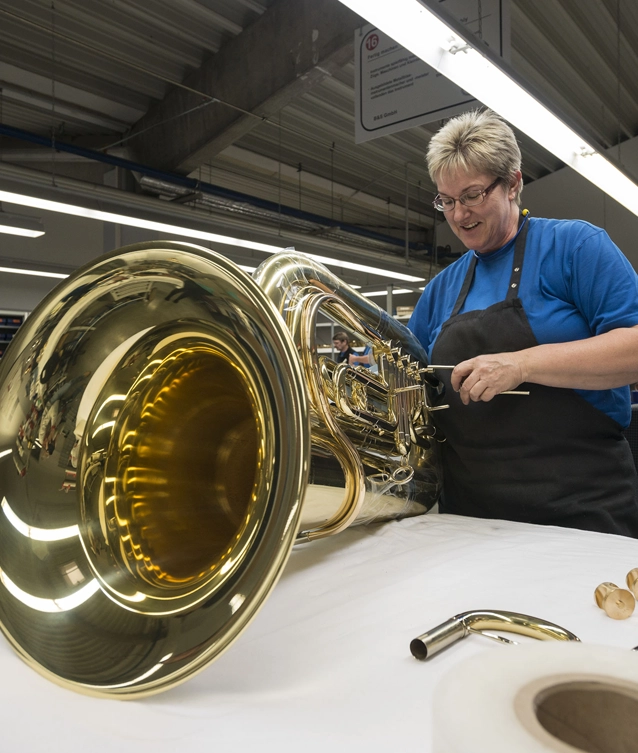- Home
- Know-how and story
- Know-How
Innovating and Creating
Benchmark Instruments
The creation of each instrument is a masterful blend of decades of expertise and cutting-edge technology. Every instrument passes through the skilled hands of numerous instrument makers, with techniques and knowledge passed down through generations.
The bell is an important component of any brass instrument: the manufacturing method influences the sound (overtones) and response so B&S puts all possible effort into bellmaking. The bell pattern is cut out from a sheet of yellow brass, gold brass or red brass. Different material thicknesses are used depending on the instrument and its intended purpose.
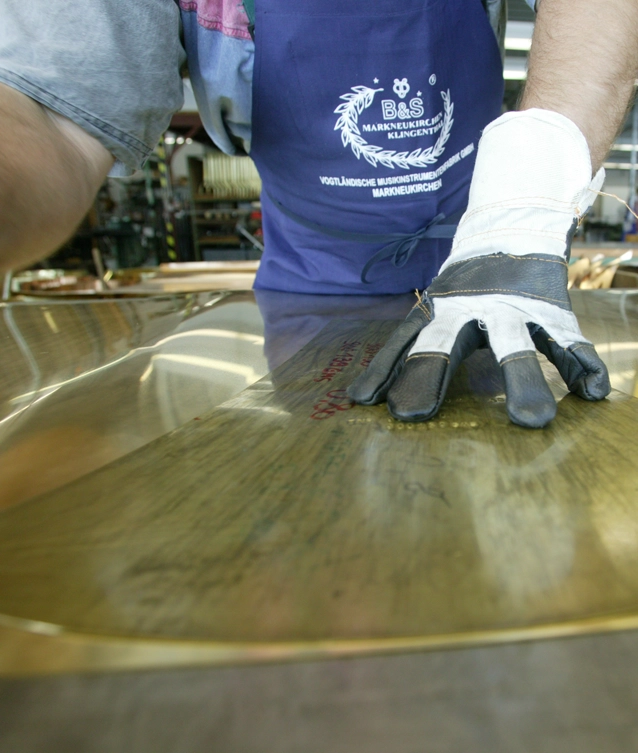
Working on the perfect seam: the bell stem is folded lengthwise; with a special pair of pliers small teeth are cut out and raised: these will later form the longitudinal seam, a clearly visible evidence of authentic craftsmanship.
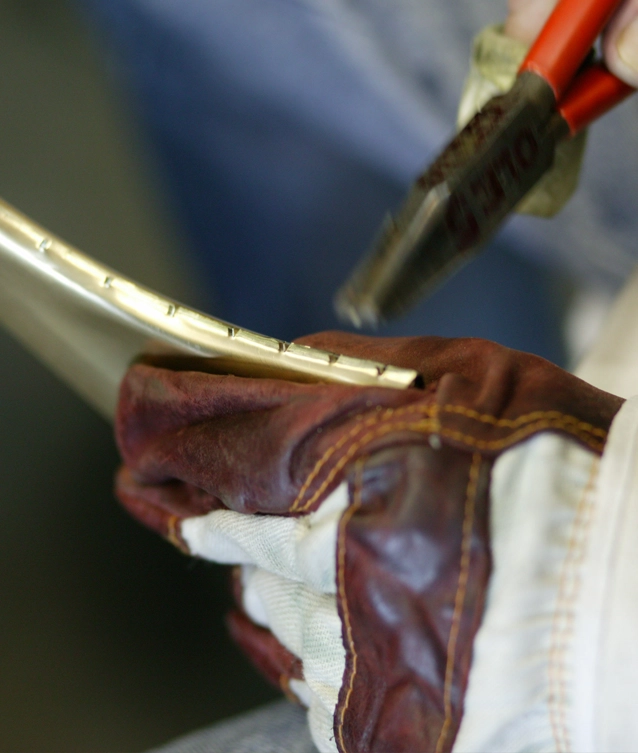
A compound of flux and brass spelter containing tiny brass particles is applied to the seam and skillfully brazed afterwards. A great deal of experience is required to identify the precise temperature at which the brass spelter melts, closing the seam.
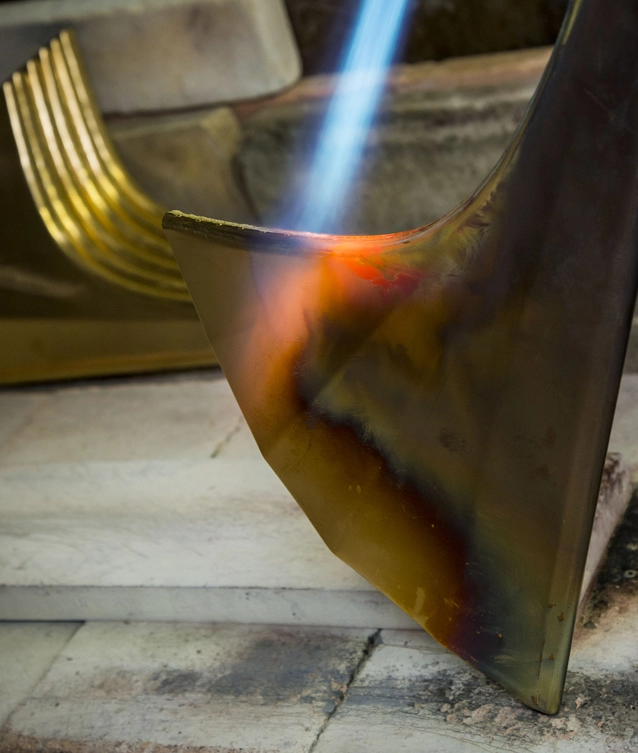
Shaping the bell: True hand hammering brings the bell into shape and also ensures an evenly graduated wall thickness throughout the whole bell guaranteeing a perfect sound and dynamic range across all registers.
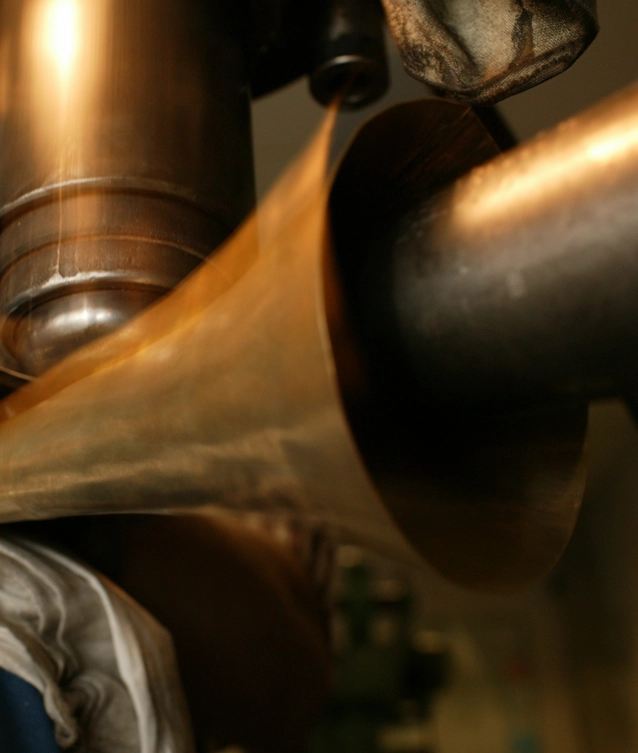
The bell is then precisely trimmed by pushing it onto the bell mandrel.
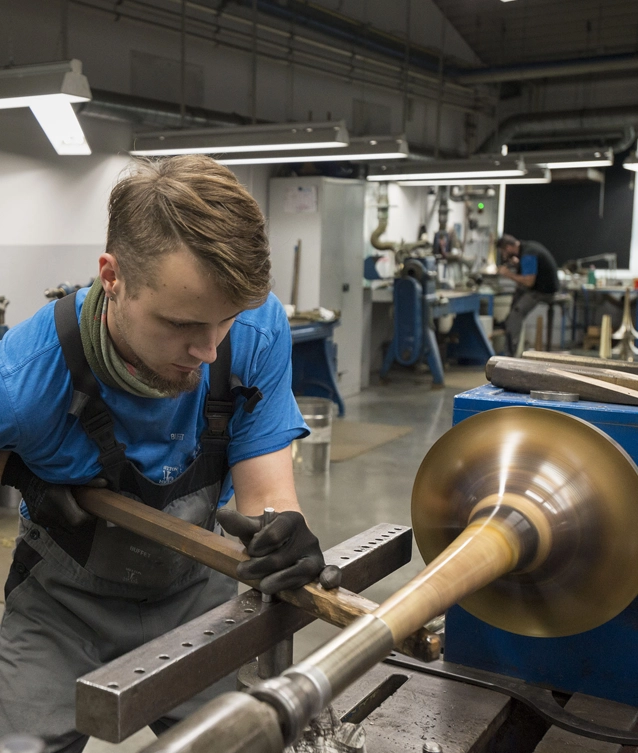
It is also important to us to manufacture all piston and rotary valves plus all trombone slides ourselves with highest precision - this allows us to individually implement the specifications and dimensions that are ideal for each model.
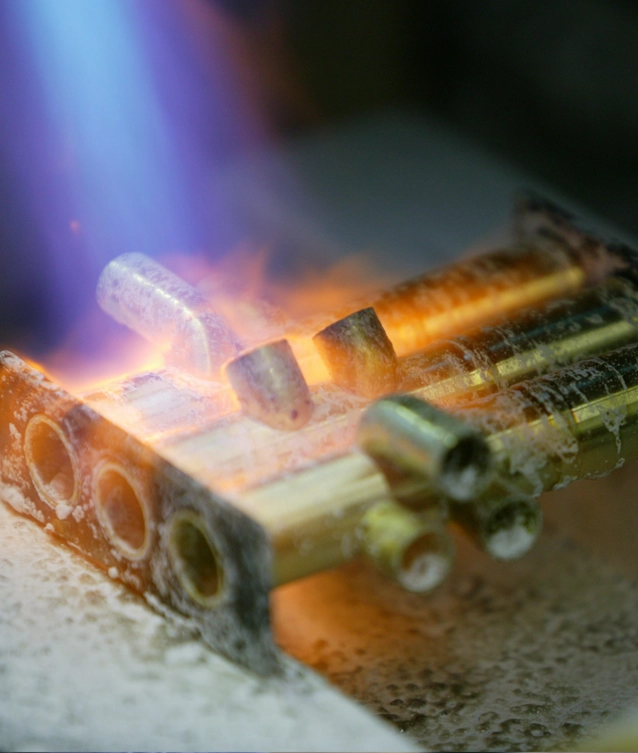
During assembly, all components are soldered together for a perfect fit. Soldering is an art in itself - the important and decisive factor here is to bring the well-prepared parts together without creating any tension.
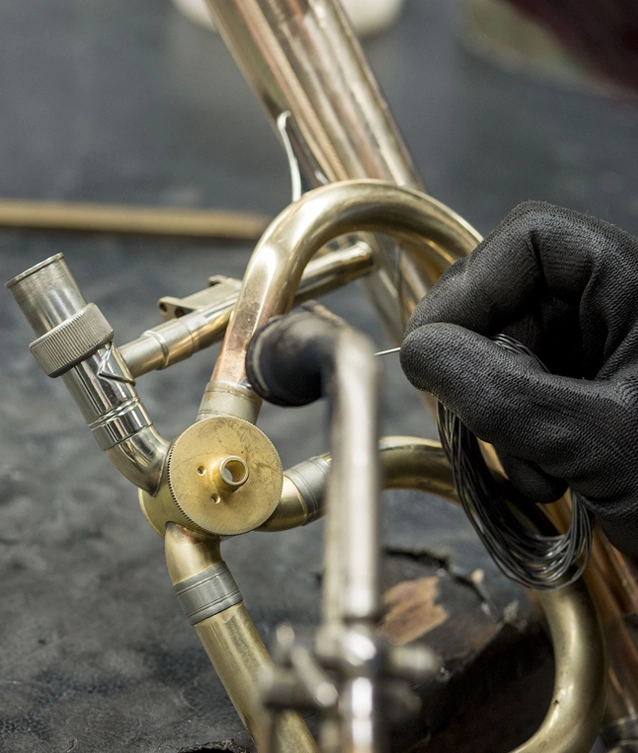
Polishing isn’t just for giving the instrument its bright, shiny appearance - it’s also an essential part of quality control. All instruments are carefully polished multiple times throughout the manufacturing process: each component, e.g. leadpipe, valve group, bell and bows is polished individually prior to being assembled.
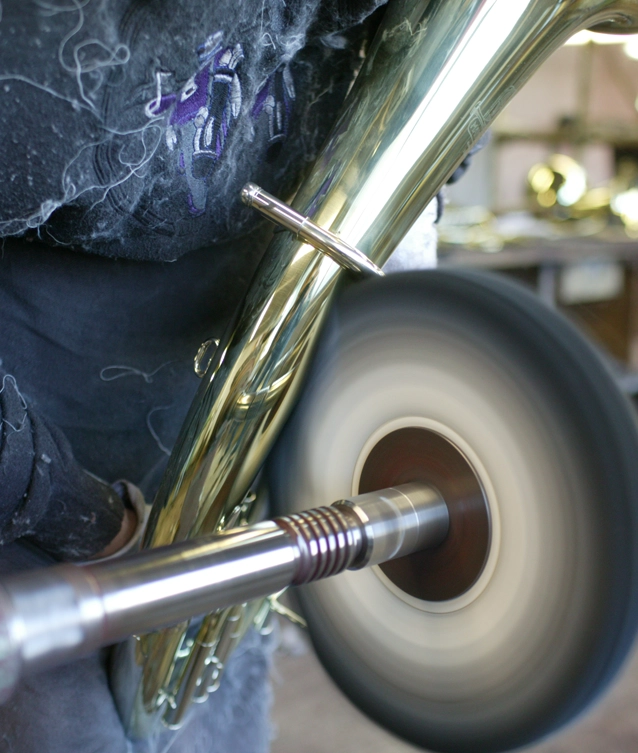
After lacquering (or plating) inhouse, the valves and slides are perfectly fitted for a smooth and silent operation. Prior to packaging and shipping worldwide, a thorough final inspection including a playtest is carried out.
